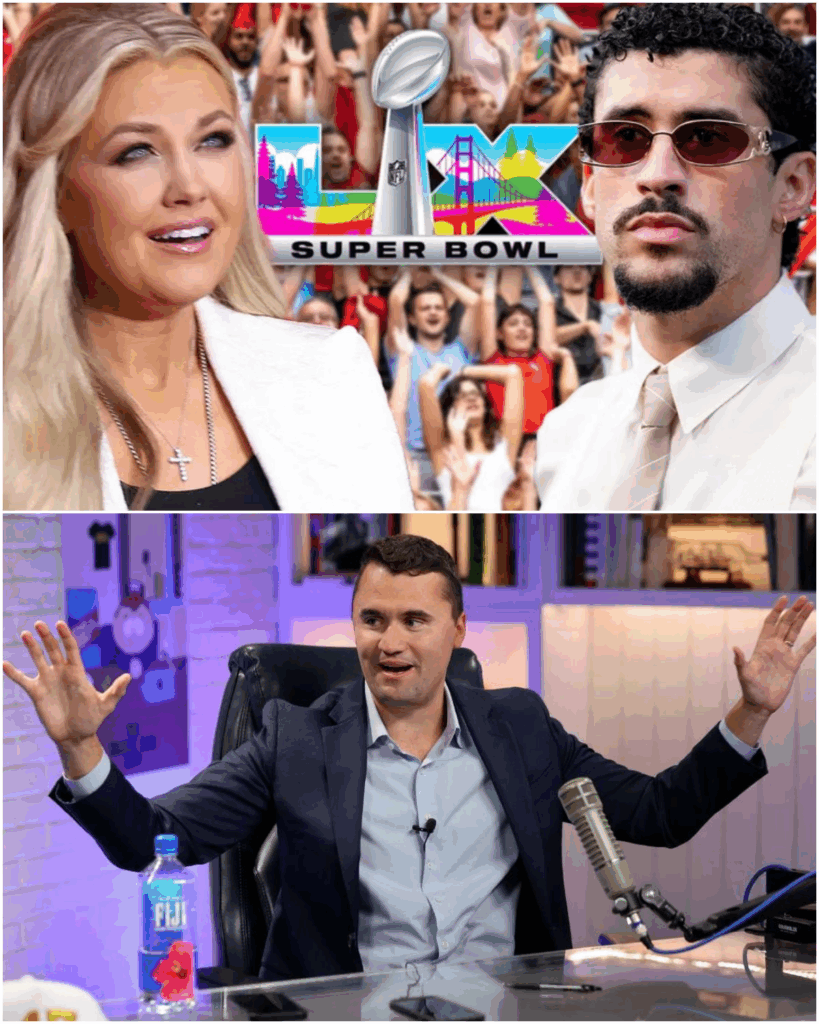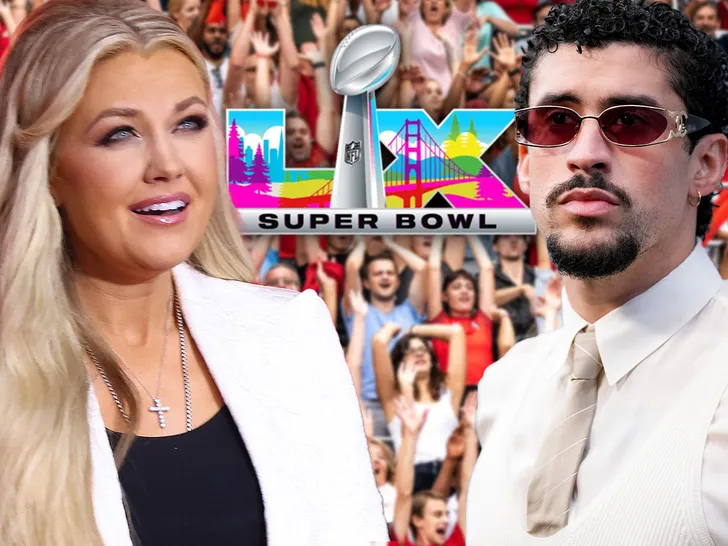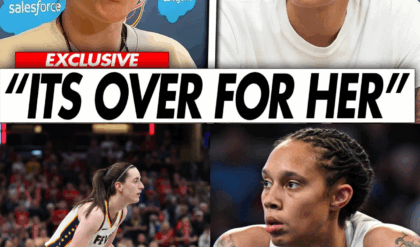TURNING POINT USA ANNOUNCES “THE ALL-AMERICAN HALFTIME SHOW” — A PATRIOTIC RIVAL TO THE SUPER BOWL’S MAIN EVENT
PHOENIX, ARIZONA —
In a move that’s already sending tremors through both the sports and entertainment worlds, Turning Point USA — the conservative nonprofit once led by the late Charlie Kirk and now helmed by his widow, Erika Kirk — has announced plans to launch its own rival halftime show on the same night as the NFL’s Super Bowl LVIX.
The event, officially titled “The All-American Halftime Show,” will air concurrently with the NFL’s halftime performance — headlined this year by Latin superstar Bad Bunny. It’s a bold act of counter-programming that TPUSA describes as “a celebration of faith, freedom, and the true spirit of America.”
The announcement, posted Thursday across TPUSA’s social channels, immediately ignited debate.
Supporters hailed the move as “a stand for American culture,” while critics accused the group of fueling division under the guise of patriotism.
Within hours, hashtags like #AllAmericanHalftimeShow and #BadBunnyBacklash began trending across X and Instagram, turning what might have been a niche political event into one of the biggest culture stories of the week.

A Patriotic Counterpoint to Pop Culture
The tone of TPUSA’s statement was unmistakable — part invitation, part manifesto.
“We’re thrilled to announce The All-American Halftime Show,” the post read. “This event is about faith, freedom, and the music that defines who we are as Americans.”
While full details remain under wraps — including the show’s location, streaming partners, and full artist lineup — one line buried in the event’s online signup form sparked immediate controversy. Under “Preferred Music Genres,” attendees could select options like country, pop, or gospel — along with one box labeled simply: “Anything in English.”
That line quickly became the story. To supporters, it was a tongue-in-cheek nod to mainstream American music. To critics, it was a thinly veiled dig at Bad Bunny, whose Spanish-language catalog dominates global charts but has drawn skepticism from some conservative commentators.
The phrase ricocheted across the internet, dividing timelines. “It’s about celebrating American-made music — not excluding anyone,” wrote one supporter. But detractors saw something else: “This isn’t patriotism,” one critic posted, “it’s cultural gatekeeping dressed up as freedom.”
The Backdrop: Bad Bunny and the Culture Clash
Bad Bunny’s selection as the official Super Bowl halftime performer has already been one of the most polarizing entertainment stories of the year.
The Puerto Rican megastar — known for his outspoken political views and unapologetic identity — represents the globalized, multilingual direction of modern pop culture.
But for some in conservative circles, his appointment feels like a symptom of a deeper shift away from “traditional American values.”
Elon Musk’s recent online comments threatening to pull his companies’ Super Bowl advertising “if the NFL insists on pushing politics with Bad Bunny” only intensified the firestorm.
Comedian and late-night host Jimmy Kimmel fired back on-air, calling Musk’s remarks “absurd” and defending Bad Bunny as “the global face of modern music.”
Into this culture war stepped Turning Point USA — not with a boycott, but with a rival broadcast.
Erika Kirk Steps Forward
For Erika Kirk, this marks her first major public initiative since assuming leadership of TPUSA earlier this year after her husband’s passing.
Her statement on the group’s website framed the new event as both tribute and continuation of Charlie Kirk’s vision.
“Charlie always believed that culture was upstream of politics — that if we want to preserve what makes America great, we have to create, not just criticize,” she wrote.
“This event is about unity, pride, and the music that brings us together.”
Insiders close to TPUSA say Erika has taken a hands-on role in shaping the event, personally recruiting artists and negotiating with streaming partners.
“She’s not trying to outdo the NFL,” said one person involved in the planning. “She’s trying to reclaim a piece of cultural space that conservatives feel they’ve lost.”
What to Expect from “The All-American Halftime Show”
According to sources familiar with production plans, the event will likely blend live music, patriotic tributes, and celebrity guest appearances from “artists who love this country and aren’t afraid to say so.”
Early reports suggest the show could feature a mix of country, pop, and Christian artists — with an emphasis on mainstream appeal rather than political messaging.
TPUSA is reportedly in talks with several major streaming platforms and smaller independent networks to air the event live, with Nashville and Dallas emerging as potential venues.
A spokesperson hinted that “big names who stand for faith and freedom” are already confirmed, promising a show designed for “those who feel unseen by Hollywood and unheard by the NFL.”
The production team, drawn partly from the crew behind Turning Point’s AmericaFest conferences, is said to be planning grand visuals, tributes to military veterans, and a special segment honoring first responders.

A New Cultural Divide
The Super Bowl halftime show has long been a lightning rod for debate — from Janet Jackson’s infamous 2004 performance to Beyoncé’s politically charged 2016 set.
But the TPUSA announcement marks the first time a major organization has launched a direct counter-programming effort to the NFL’s broadcast.
For some, it’s a refreshing alternative. For others, it’s another sign of a nation splintering into two parallel cultures.
“This is more than just two concerts,” said cultural analyst Jason Reed. “It’s two visions of America competing for the same screen — one global and diverse, one rooted in traditional nationalism.”
Supporters argue that the “All-American Halftime Show” isn’t an attack on Bad Bunny, but a response to what they see as an increasingly politicized entertainment industry.
“This isn’t about canceling anyone,” one attendee wrote on X. “It’s about giving people a choice. Let them pick what represents them.”
The Stakes: Culture as the New Battlefield
For Turning Point USA, the event is more than a show — it’s a strategic pivot into cultural production.
Founded in 2012 as a campus-based political movement, the organization has expanded into media, conferences, and influencer networks.
Now, under Erika Kirk’s direction, it appears ready to compete directly with Hollywood on its own turf.
Marketing experts see the move as part of a broader trend.
“Political organizations are becoming entertainment brands,” said media strategist Laura McGinn. “They’re realizing that to win influence, you don’t need votes — you need viewers.”
If the “All-American Halftime Show” succeeds in drawing even a fraction of the Super Bowl’s audience, it could redefine how political movements engage with pop culture.
The NFL’s Silence — and Hollywood’s Watchful Eye
So far, the NFL has not commented on Turning Point’s announcement. But sources close to league executives say the organization is “monitoring” the situation carefully.
Bad Bunny, for his part, seems unfazed. During a recent Saturday Night Live appearance, he joked,
“You might not know this, but I’m doing the Super Bowl Halftime Show — and I think everybody’s happy about it … even Fox News!”
The audience erupted in laughter as SNL aired a spoof montage of conservative pundits seemingly praising him.
But inside entertainment circles, there’s less laughter — and more curiosity. Industry insiders see TPUSA’s move as a potential inflection point.
“Imagine if this works,” one veteran producer said. “You’d have a template for parallel culture — two Americas, two stages, both claiming to speak for the people.”
The Bigger Picture
The Super Bowl, set for February 8, 2026, is still months away, but the cultural battle lines are already drawn.
The NFL will stage its global spectacle featuring Bad Bunny’s bilingual flair and multicultural production. Meanwhile, Turning Point USA will broadcast an event framed around unity, patriotism, and English-language music.
To millions of viewers, that choice may feel less like entertainment and more like identity.
As Erika Kirk put it in her closing line from the press release:
“This isn’t about replacing the Super Bowl. It’s about reminding America who we are — and who we can still be.”
Whether celebrated as a patriotic stand or criticized as cultural tribalism, one fact is undeniable:
This year, the halftime story might not belong to the NFL at all —
but to a widow, a movement, and a rival stage daring to redefine the sound of America.





